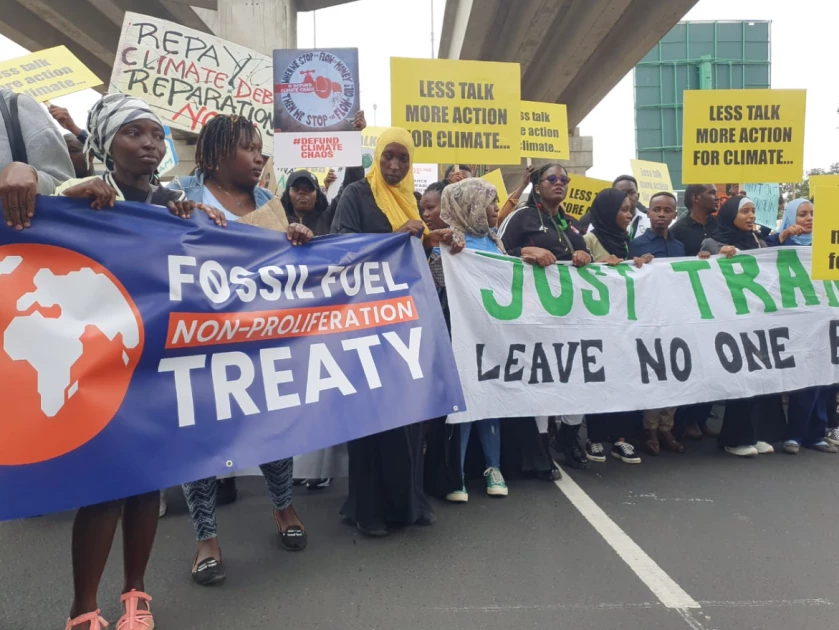As Africa continues its energy transition, renewable energy sources not only provide a cleaner and more sustainable path forward, but also present a remarkable opportunity to empower Kenyan women and girls.
Renewable energy is proving to be a powerful force for gender equality in Kenya, unlocking economic opportunities and fostering social progress for women and girls.
According to the United Nations Development Programme (UNDP), 2.4 billion people – a third of the world – rely on solid fuels such as firewood or charcoal to heat their homes.
This disproportionately impacts women who, in many parts, are primarily in charge of running the household. As a result, women make upto the majority of the 3.2 million deaths caused by indoor pollution linked to open fires.
They also spend upto 18 hours a week collecting firewood and other fuels – time that could be used on education, leisure, rest or even earning an income.
For decades, many Kenyans have faced significant barriers to energy access, particularly in rural areas where grid connectivity is limited.
Traditional energy sources, such as firewood and charcoal, have long been the mainstay of energy consumption, but these methods are not only time-consuming and labor-intensive, but they also expose women and girls to health risks from indoor air pollution.
Renewable energy technologies, such as solar panels and biogas systems, are changing Kenya’s energy landscape. These technologies provide cleaner, more reliable, and accessible energy, providing a lifeline to women and girls who have long been burdened by the challenges of traditional energy sources.
Renewable energy’s impact goes far beyond simply supplying electricity. It is empowering Kenyan women and girls, opening up economic opportunities, fostering social progress, and paving the way for a more equitable and sustainable future.
Women and girls bear the brunt of firewood and charcoal collection in Kenya’s rural communities, spending hours each day traversing treacherous terrain to gather these necessary but hazardous fuels.
This not only limits their time for education and income-generating activities, but also exposes them to harmful smoke, leading to respiratory illnesses and other health complications.
Renewable energy technologies are freeing women and girls from these burdens. Solar panels and biogas systems provide clean, accessible energy, freeing up their time to pursue education, engage in entrepreneurial ventures, and participate more actively in community life.
Boosting women’s entrepreneurship
Renewable energy not only empowers Kenyan women as users but also creates new business opportunities. Women are increasingly taking on leadership roles in the renewable energy sector, establishing businesses as distributors, technicians, and installers.
These ventures provide women with financial independence, skill development, and a sense of self-confidence.
In Homa Bay town, women have benefited from Nyalore Impact, an initiative that is providing them with clean energy.
According to Madam Awour Dorothy Otieno, the founder of the initiative, her son noticed how she used to struggle using charcoal to make food, hence introducing her to clean technologies in the year 2014.
Since then, Dorothy adopted the clean cook stoves and started production and sale of briquettes which she has now advanced to clean energy with zero emissions.
The initiative has since helped women in Homa Bay town and has extended services to other neighboring counties.
“I could use maize cobs, paraffin and charcoal, which overtime affected me health wise. After my son who was in campus by then noticed the struggles, he made me understand and adopt clean energy,” Dorothy said.
“Renewable energy saves a woman money that could buy firewood, that which she could use in hospital for treatment as well as saving time. Cooking is a woman’s job as per our tradition and traditional fuels not only affect women but also children who stay with their mothers while cooking.”
The initiative has already impacted lives of women in eight counties in the Western Kenya region and aims to reach 25 counties in two years’ time.
Besides, she has been able to employ several women through the initiative.
Diana Moruri, a resident of Keroka in Nyamira County, narrated how the use of clean energy has helped her. Moruri has been using charcoal and firewood till three months ago when she learnt about the Nyalore Impact initiative.
“I could experience a three-day long severe headache while using charcoal to cook. I could use a lot of money purchasing the charcoal daily, hence made no savings, unlike now when I’m using electricity,” she said.
Venah Momanyi, a mother of five, noted: “I could get stressed especially during the rainy season, since I don’t have trees in my portion of land to cut down as firewood. As women we’ve been suffering for long, and I urge the government to support us towards shifting to clean energy for the sake of our health and peace.”
Aligning with the Fossil Fuel Treaty’s commitment to a just transition
The empowerment of Kenyan women and girls is not just a desirable outcome of renewable energy adoption; it is a fundamental principle promoted by the Fossil Fuel Non-Proliferation Treaty Initiative.
The treaty recognizes that a just transition away from fossil fuels must be inclusive and equitable, ensuring that women and girls are not left behind.
As Kenya continues to embrace renewable energy, the potential for women’s empowerment and gender equality grows exponentially.
Renewable energy is not only a clean energy solution, but also a catalyst for social transformation, paving the way for a more equitable and sustainable future for Kenyan women and girls across the country.
Kenya is poised to become a global leader in sustainable development, demonstrating that a clean energy future can also be equitable and empowering.
Kenyan women and girls are ready to take center stage in this transformation, leading the country to a brighter future powered by renewable energy.



